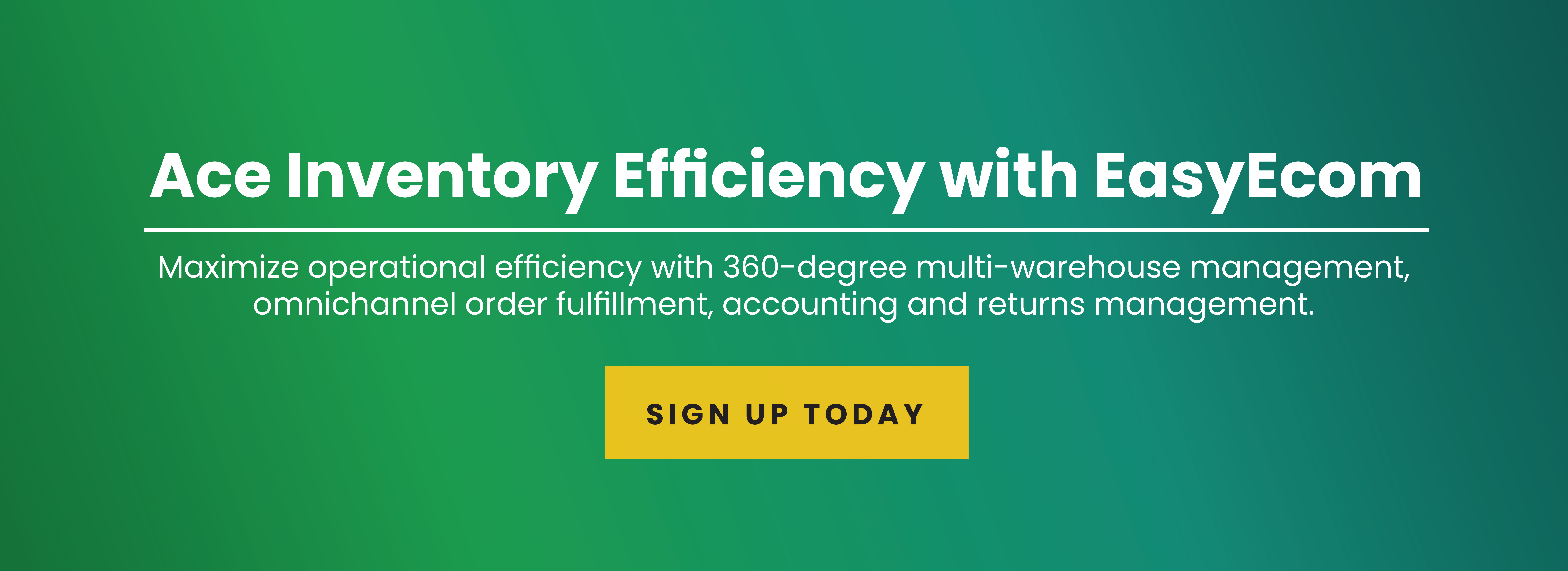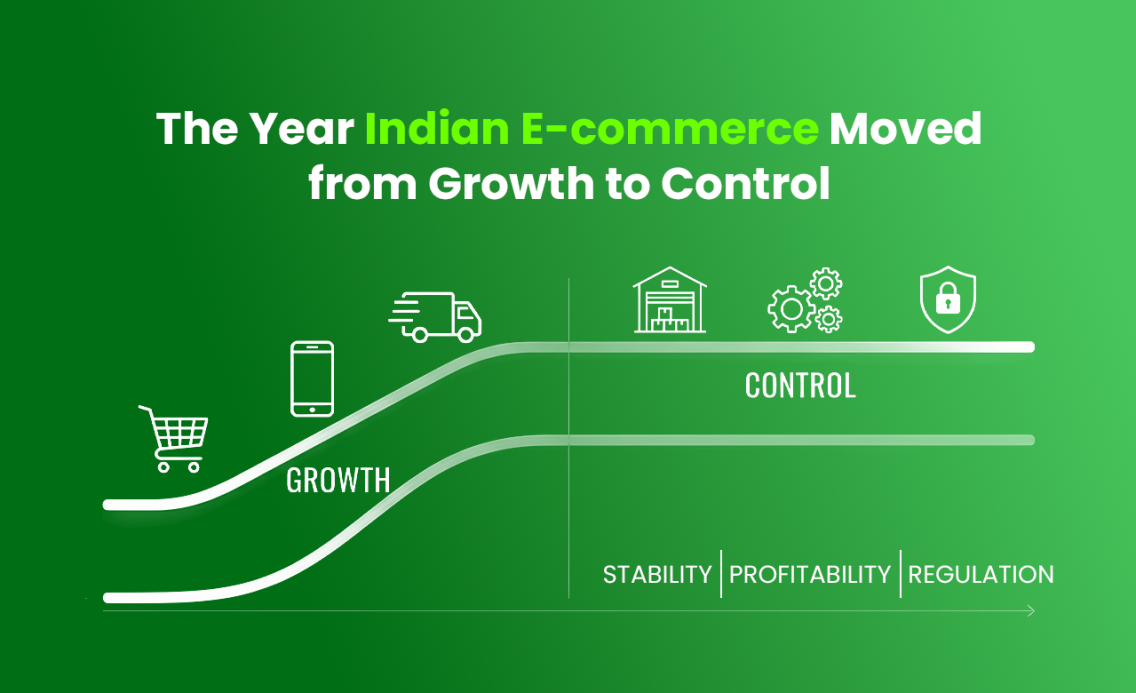You’re probably tired of reading about how the pandemic has accelerated eCommerce growth, so we’re not going to repeat something you’re already aware of. However, it’s worth noting that it has played a part in the prediction that the Indian eCommerce market will touch $99 billion in the next 2 years! Data analytics has everything to do with this growth acceleration, which is why indigenous D2C brands are tapping into it to cement their foothold in the market.
The increase in internet penetration and smartphone usage has made D2C brands naturally digital-first. As channel distribution diversifies, so too do the eCommerce analytics capabilities a business needs to understand what motivates users and influences purchase habits in order to drive user acquisition.
D2C brands leverage analytics to provide personalized experiences to the end user, thus establishing that emotional connect and brand loyalty. It also helps organizations maximize revenue growth and underpin omnichannel supply chains.
Let’s take you through the brands that are using data analytics to shine in the limelight!
Roadblocks to D2C Profitability Challenges
The three challenges weighing down D2C eCommerce players are;
- The swings in demand and accompanying user behavior which compound demand forecasting and require daily check-ins.
- Insufficient integration of inventory across e-commerce and offline stores, leading to suboptimal inventory distribution
- Making sense of data that is wrangled from multiple sources.
The D2C model today is a win for both consumers and brands because the former gets up close and personal with the business, and the latter can control and keep an eye on things without the involvement of middle persons. Adopting a D2C model lets brands tailor their messaging, products and services to customer preferences. Being able to narrow down searches to filters such as discounts, price range and starred-reviews create an enjoyable experience for customers. Here again, data analytics contributes to competitive pricing, by giving you accurate budget estimates based on a user’s historic purchase behavior.
Here are some D2C players founders have experienced profitability first-hand from leveraging logistics analytics;
- The Ayurveda Co
The Ayurveda Co is a herbal beauty and cosmetics brand founded by Shreedha Singh in 2021. Although the brand is just a year young, Shreedha’s prior experience founding Khadi Essentials in 2017 and Pure and Safe 2 years later has taught her that data analytics is key to supporting a D2C brand’s upscaling efforts without inviting aggressive operational costs.
When order volume is low in the early days, young and new brands handle it themselves. But as the count rises, brands outsource last-mile delivery to minimize errors. Some third-party logistics aggregators take care of warehousing too, which needs to be tracked via automated eCommerce tracking software. A solution lets you monitor the storage status by location, expansion of facilities and distribution and routing of packages. It can also lower the costs associated with allocating and moving manpower with offerings such as Return-to-Origin calling, address correction, prepaid and COD order identification.
Useful reports on warehouse and inventory include the detailed GRN report, shelf-wise reports and warehouse-wise inventory reports. The first of these indicate the received value and quantities for orders after applying filters such as the warehouse location, invoice date, vendors’ invoice number and PO numbers. Similarly, the shelf-wise and warehouse-wise reports lend an exactness to the products by shelf, location and length of time.
- Wow Skin Science
Wow Skin Science is a cruelty-free beauty and cosmetics brand based in Bengaluru. Manish Chowdhary, one of the co-founders strongly believes that data analytics is the reason brands can be closer and connected to their customers, identify store locations and pincode serviceability and plan the supply chain predictively . This is applicable for those brands that are already leveraging an omnichannel eCommerce strategy as well as those digital bands that transitioned to offline retail.
- Suta
Suta is a Mumbai-based saree brand design house cofounded by sisters Sujata and Taniya in 2015. The entrepreneurial duo quit their corporate jobs to pursue their childhood love for handcrafted ethnic wear. The brand has clocked a 200% YoY growth for the past 6 years, which Sujata Biswas attributes is partly due to data analytics.
The one advantage digital D2C brands had over physical retailers is easier returns, though this too is rapidly changing. And with data analytics, brands can not only offer quick order fulfillment but can lower returns. To be more specific, D2C eCommerce sellers require performance indicators like the ones SKU performance reports reveal concerning their product’s sellability. It further displays the products sold and quantities returned, enabling you to periodically check if actual returns exceed expected returns, and taking corrective actions to remedy high return rates. Sellers can use this information to negotiate exchanges where possible and applicable, which is preferable to dealing with more erroneous, damaged or defective items. Just think; if the items that needed to undergo extensive quality compliance checks (and the added restorative costs) outweighed high-quality error-free orders, your business would run at a loss! These analytics can give you solid grounds to break a fruitless supplier contract and explore other options.
- Plum Goodness
Plum Goodness an offering under PurePlay which also houses two other brands, Phy (for men) and Plum BodyLovin. Plum is a beauty and personal care brand launched by Shankar Prasad in 2013. With a physical presence in 250+ Indian cities in addition to multi-channel selling via their website, Amazon, Nykaa and Myntra (to name a few), Plum’s founder has lauded the evolution of the D2C landscape with analytics.
In Shankar’s opinion, technology interventions have democratized eCommerce. Data analytics is everywhere, from enabling expansion and adding pin codes to seamless returns processing. In response to the growth and popularity of q-Commerce, he feels that the next action item on the agenda is to democratize same-day delivery.
- Foxy.in
Foxy.in is a brand aggregator platform that houses multiple personal care and beauty brands such as SUGAR, Mamaearth, Foy Naturals, Bare Anatomy and the Minimalist. It takes preferences and selections into account and displays deals,offers and combos that match these. Foxy was founded by Sachin Singhal and Chandranshu in 2018.
When it came to the role of eCommerce analytics in overall improvement, Singhal shared the same view as Shankar. He opined that it helps bring a brand move closer to its consumers by capturing and remembering preferences accurately. He further added that from a dispatch perspective, D2C brands need predictive tools to understand the rate of stock flowouts. For example, with an order aging report, sellers would know which orders are shipped out already and which ones are queued up in order to unstop bottlenecks and complete the fulfillment process.
The Role of Data Analytics in Last-Mile Logistics
Rajaganesh Sethupathi, who heads Delhivery’s Enterprise Solutions, shared the courier company’s plans to support D2C businesses who form a sizable cluster of their high net worth clientele. Echoing the need to prioritize same-day deliveries under the Insta Commerce business revenue model, Sethupathi said that logistics companies are creating a network of small warehouses inside cities, which require demand planning and forecasting by brands. And this is where syncing last-mile delivery with an eCommerce analytics suite comes in. Brands can go with a company that receives orders and directly dispatches it through their existing network to simplify the movement of goods. Citing Delhivery’s example, Sethupathi said that the company gives late ordering cutoff and keeps costs low to connect orders in more ways to their last-mile services.
The pandemic may have served as the catalyst for change eCommerce-wise, but it’s India’s quickness to adapt to digital-first D2C brands that has been interesting to observe. Brands like Licious and Mamaearth have become household names, such that we’ve moved to the D2C 2.0. Brands under this are on a mission to be customer-centric at-scale by leveraging an innovative, tech-enabled ecosystem. 100% D2C companies like Forever New Clothing taps into the data segment, social and content commerce to deliver value through curated experiences. Zahid Ansani, the VP of IT at FNC, further said that a blended approach is essential when you step into the phygital world.

.png)











